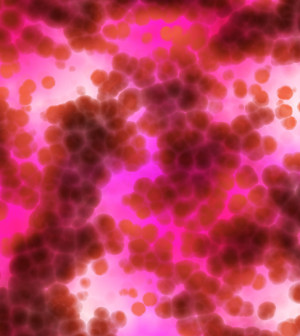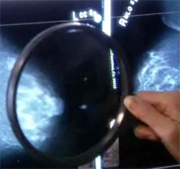- Could Your Grocery Store Meat Be Causing Recurring UTIs?
- Are You Making This Expensive Thermostat Error This Winter?
- Recognizing the Signs of Hypothyroidism
- 10 Strategies to Overcome Insomnia
- Could Artificial Sweeteners Be Aging the Brain Faster?
- Techniques for Soothing Your Nervous System
- Does the Water in Your House Smell Funny? Here’s Why
- Can a Daily Dose of Apple Cider Vinegar Actually Aid Weight Loss?
- 6 Health Beverages That Can Actually Spike Your Blood Sugar
- Treatment Options for Social Anxiety Disorder
Dietary Dioxins Don’t Seem to Increase Breast Cancer Risk: Study


Consuming low levels of chemicals called dioxins in food doesn’t increase the risk of breast cancer, contends a new study that challenges a widely held belief about the effect of dioxins.
Dioxins are a byproduct of industrial activity that have been linked to a number of types of cancer. However, there is conflicting evidence of a connection between dioxins and breast cancer.
Food — primarily meat and dairy products — is believed to be one of the main sources of human exposure to dioxin. Previous studies have looked at environmental exposure to dioxins and breast cancer, but the researchers said this is the first research to examine dietary intake of dioxins and breast cancer risk.
The study included nearly 64,000 women in France who were followed from 1993 to 2008. About half of these women had already gone through menopause, according to the researchers. Their dietary exposure to dioxin was estimated by combining information about their eating habits with data on dioxin levels in the foods they ate.
Only about 3 percent of the women had average daily dietary exposure to dioxins above the safety threshold established by the World Health Organization.
From 1993 to 2008, almost 3,500 women in the study developed breast cancer. There was no link between dietary dioxin exposure and increased breast cancer risk, according to the study. The researchers did find what appeared to be a lower risk of hormone-independent breast cancer in postmenopausal women who had the highest dioxin intake.
The study was published March 17 in the journal Breast Cancer Research. It didn’t include women who lived in areas where dioxins are emitted, or those who eat foods grown in areas where dioxins are emitted. These women may eat more dioxin-contaminated food than average, said the French researchers.
“While our study results seem to suggest absence of breast cancer risk associated with dietary exposure to dioxins in low-exposed postmenopausal women, we cannot rule out risk in high-exposed populations, risk associated with early-life exposure or pregnancy period, and risk associated with combined dietary and environmental exposures,” lead investigator Beatrice Fervers, from the Leon Berard Cancer Center in Lyon, said in a journal news release. Researchers from the Universite Claude Bernard Lyon 1 were also involved in the study.
“Further studies on these risks and the decreased risk of hormone-independent breast cancer are required,” Fervers added.
More information
The U.S. National Cancer Institute outlines breast cancer risk and protective factors.
Source: HealthDay
Copyright © 2026 HealthDay. All rights reserved.










